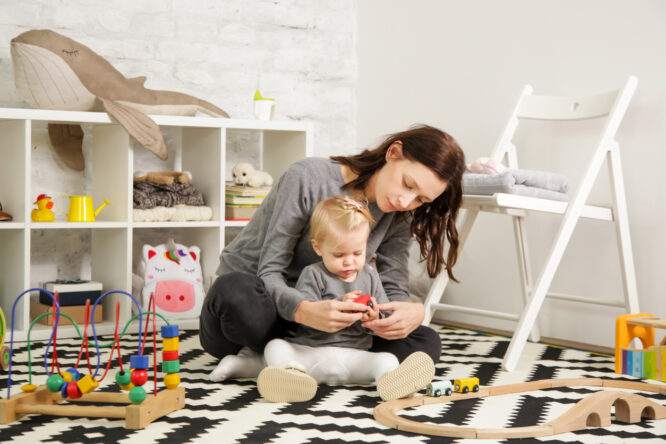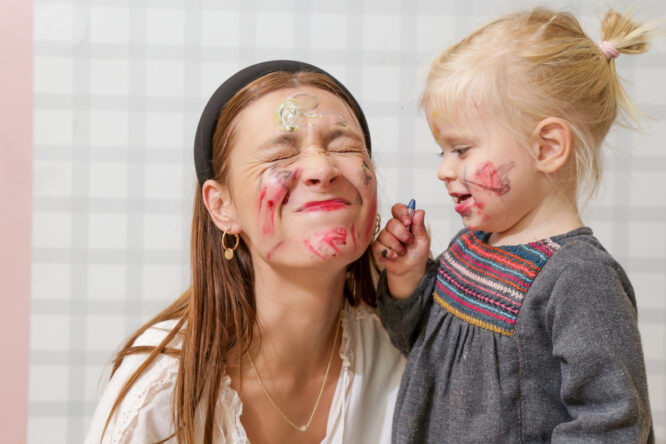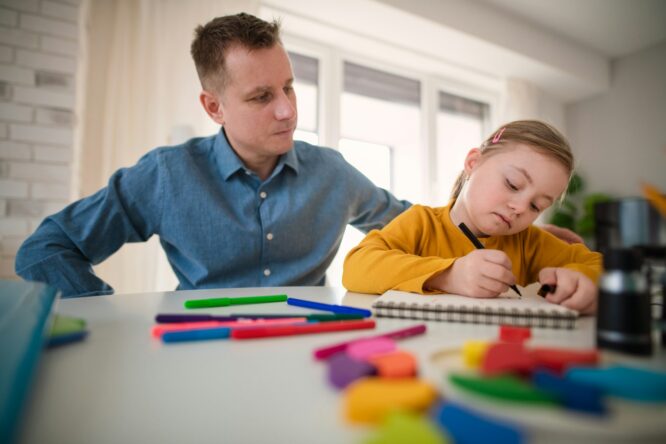Childminders are some of the most trusted people in a child’s early life, but that doesn’t mean it’s always smooth sailing behind the scenes.

Many of them have learned to smile through the awkward moments, absorb silent expectations, and stay professional even when things get tense. But there’s a lot they wish parents understood—things they usually don’t say out loud. We spoke to several people who look after kids for a living, and they had a lot to say. Here are 12 honest truths from the childminder’s side of things.
1. Your child doesn’t need to be perfect for us to care.

Some parents worry too much about how their child behaves when they’re not around, almost apologising in advance if their toddler has a meltdown or isn’t sharing yet. The thing is, childminders aren’t expecting perfection. We know kids have tough days. We’re not judging them or you. What matters more is how we handle it together and whether we can communicate honestly when things are tricky. Kids being kids isn’t a problem—it’s the job.
2. We notice when you’re running late, and it adds up.

We get that life happens, traffic jams pop up, and meetings overrun. However, when it becomes a pattern, it inevitably eats away at the boundaries. A few extra minutes here and there can have a real impact on our personal time and energy. We often won’t say anything because it feels awkward to bring up. Of course, the respect goes both ways. If you value what we do, showing up on time is a subtle way of saying it without needing a thank-you card.
3. Communication matters more than fancy snacks or gifts.
 Source: Unsplash
Source: Unsplash Parents sometimes try to show appreciation through little extras, which is lovely, but what makes the biggest difference is open, respectful communication. A quick heads-up about changes or a moment to check in goes a long way. We’re not expecting grand gestures. We just want to feel like we’re in a proper partnership with you, not a side service. When we feel seen, the care gets better for everyone, especially your child.
4. Consistency at home makes our job so much easier.

We can help with routines, behaviour, and development—but when things are completely different at home, it’s hard for children to settle. Mixed signals confuse them and stretch out the adjustment period. If we’re working on gentle boundaries or helping them feel secure with routines, it really helps when those are backed up at home. We’re not trying to control your parenting—we just know how much consistency helps your child thrive.
5. We sometimes need a break too, even if we love your child.

We get close to the children in our care. We celebrate their milestones and notice the small things, but that doesn’t mean we don’t feel tired or stretched thin sometimes, especially when the day’s been full-on emotionally or physically. It’s not us being ungrateful; it’s about being human. Trust that when we need a day off, it’s not because we don’t care. It’s because we care enough to want to keep showing up well-rested and present.
6. We hear and see more than you think.

Kids talk. A lot. And they often say things without a filter. We learn things about your home life, your routines, even your mood through the eyes of your child. It’s rarely judged, but it is noticed. We’re not gathering gossip; we’re tuning into their emotional world. Sometimes it helps us support them better. However, just know, if your child’s acting out, we might quietly be connecting it to what’s going on beyond drop-off.
7. Last-minute plan changes can be really disruptive.

It might seem small to cancel care for a day or shift the schedule late the night before, but for a childminder who’s planned meals, activities, or group outings, it throws off the rhythm in a big way. We understand emergencies, but when it becomes routine, it affects how we plan and how we feel about our time being valued. A bit of notice and consideration goes a long way in keeping things smooth.
8. We care about your child even after hours.

It doesn’t just stop at pick-up. We think about your child on our days off. We notice when they’re off their game. We remember the little things they said, or the way they looked at us when they were unsure. This isn’t just a job to most of us—it’s a relationship. We may not say it, but your child’s wellbeing often stays with us long after you’ve picked them up. That quiet care runs deeper than most people realise.
9. We wish more parents asked how we’re doing too.

We hear a lot about how your child slept, what they ate, how you’re feeling, but rarely get asked how things are going on our end. It’s not that we expect it, but when it happens, it means a lot. Even just a quick “How’s your day been?” at pick-up helps us feel like we’re part of a team, not just a service being clocked in and out of. That little shift can change the whole tone of the relationship.
10. Discipline shouldn’t be a dirty word.

We’re not trying to parent your child—but we are helping to shape how they interact with the world. That sometimes includes gentle discipline, setting boundaries, and guiding behaviour in a consistent way. We wish more parents saw this as support, not criticism. We want your child to feel secure, and boundaries help with that. We’re not judging your parenting style. We just want to build something solid together.
11. Your child doesn’t need to be constantly stimulated.

Sometimes parents worry we’re not doing “enough” if they see their child playing with simple toys or having quiet time. But overstimulation can be just as stressful as boredom, especially for little brains. Unstructured play, quiet moments, and even gentle boredom help children develop creativity, patience, and calm. Trust that we’re not phoning it in. We’re giving them the space to just be kids, not mini productivity machines.
12. We’re on your side, even when we give feedback.

If we raise a concern or suggest something, it’s not an attack. It’s usually a result of observing your child closely and wanting to help them thrive. It takes a lot of care (and courage) to bring things up. We know every parent wants to feel like they’re doing great. And you are. But sometimes we notice things from a different angle. When we speak up, it’s because we’re invested, not because we’re pointing fingers.




